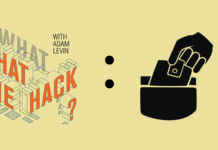 Jen* is one of the few people that opens and reads every piece of mail they receive. It’s a quirk that has paid off: A piece of junk mail is how Jen found out someone had stolen her identity.
Jen* is one of the few people that opens and reads every piece of mail they receive. It’s a quirk that has paid off: A piece of junk mail is how Jen found out someone had stolen her identity.
“I opened a letter from Macy’s, which I thought was weird,” she said. “I haven’t shopped there in years. But the letter was a rejection of a credit card application.”
Jen took immediate action, placing a credit freeze on her accounts. She thought it was all resolved then, but her identity theft nightmare was just beginning.
The Depth of the Identity Theft Problem
Jen checks her free credit report every four months. After finding the Macy’s rejection letter, she immediately checked her report again.
There were several credit inquiries for loans and credit cards that she had not made. Banks and lenders had rejected all of them. However, there was one item on the report that had been approved: a car loan for a $30,000 vehicle.
“The thief applied for a loan through an online company, which is much easier than applying for a loan in someone’s name in person,” Jen said. “She picked up a used Lexus the next day. She used my Social Security number but didn’t use my actual last name. The company still didn’t bat an eye.”
The thief even took out a car insurance policy in Jen’s name. Again, the thief applied for an account online for easier approval.
Beyond Credit—How Theft Affects You
“There were about a dozen inquiries on my credit report besides the car loan, all of which hurt my credit score,” said Jen. “And, the thief didn’t make payments on the insurance or the car, which could have hurt my credit too. I had to take action right away.”
Jen then filed a police report. An officer came to her home, and she handed over copies of her credit report with all of the fraudulent inquiries. Because it was a financial matter, the officer handed the case off to a different department.
Once Jen had a copy of the police report, she took action rather than waiting for the police to work it out. Luckily, her employer offered a free identity protection service through InfoArmor. She called the company, and representatives assigned her a case manager. Together, Jen and the case manager made a list of every false inquiry on Jen’s report and started contacting the companies one by one to have them removed.
“There were inquiries for store credit cards, phone companies, furniture stores, and car loans,” said Jen. “All of them were at places in California, and I’m thousands of miles away from there.”
The process couldn’t be completed in one day. The thief had taken information from Jen’s LinkedIn profile to verify employment dates on applications, and the person’s actions changed her security questions on the credit bureau sites as well.
Jen’s credit report now showed the thief’s address and other information instead of her own, so she couldn’t dispute the charges online. Instead, she had to call each business herself and prove her identity.
Most of the companies’ customer service departments were available only between 9 a.m. and 5 p.m., when Jen was at work. “I had to squeeze in calls on my lunch break and every spare minute I had,” she said.
Over the course of two months, Jen spent over 80 hours on the phone to dispute charges and inquiries. There were times when she was on the phone for five hours straight. Despite the long hours, she values the identity protection service for helping her handle it.
“[The case manager] was on the phone with me for the full time,” she said. “He helped me keep it together and work through the list of companies.”
Other Financial Ramifications of Identity Theft
Although the phone calls were tedious and incredibly time consuming, there were larger issues that Jen hadn’t even considered. Her InfoArmor case manager helped her navigate those problems as well.
“I could never have thought of it all on my own,” she said. “But he told me I needed to alert my 401(k) company, my mortgage lender, and my credit union account so [the thief] couldn’t access those accounts too.”
Worst of all, the problem still isn’t over. The car loan has been removed from her credit report, but other inquiries remain. Jen also worries about future issues, such as the thief filing a fraudulent tax return in her name to get a tax refund.
“I’m worried about my taxes,” she said. “It’s a real stressor. I contacted the IRS, but I’m still concerned.”
She has every reason to worry. Despite now having the thief’s full name and address, the police have not yet arrested or charged the individual. Instead, the investigation is ongoing thousands of miles away.
Advice for Dealing with ID Theft
Thanks to Jen’s hard work, her credit score has recovered since the identity theft. She notes that not everyone could handle identity theft as quickly as she did, nor does everyone have the means.
“It was time consuming and tedious, but it was also expensive,” she said. “I had to pay to FedEx documents across the country, to put a credit freeze on my account, and to have access to a fax machine—most of the documents couldn’t be emailed because of security concerns, so faxing them was the only way.”
In addition, Jen said that her employer and coworkers were understanding as she navigated the process. In many workplaces, taking personal calls during work wouldn’t be possible. Other people might have had to take time off from work to deal with identity theft, hurting their paycheck.
For those who face a similar situation, Jen recommends you do the following:
- Take diligent notes and keep them nearby. Every credit inquiry Jen disputed had its own case number, and because she sometimes had to wait days for a response, Jen had to move quickly when she did get a response. Keeping a notebook handy with every case number, the date and time of each call, and who she spoke to last helped her stay on top of the issue.
- Check your credit report. Jen caught the problem early, which saved her credit and finances. It’s a smart idea to check your credit report every four months for red flags.
- Consider hiring a service. While Jen was able to get identity protection for free, she says she would have willingly paid for it. Her case manager helped her through every phone call and identified other actions she needed to take to protect herself.
- Give yourself a break. Dealing with endless phone calls and the stress of identity theft can be hard on your nerves and well-being. Jen advises giving yourself a break every now and again and indulge in some self-care.
Moving Forward after Theft
Jen doesn’t know how the thief got her Social Security number or name, especially because she’s diligent about protecting sensitive information. However, she suspects it’s from medical forms from her frequent doctor appointments, as they all required her to enter her Social Security number, address, birthday, and other identifying information—making her an easy target for identity theft.
“Unfortunately—and the police said the same thing—people take those forms and sell them on the black market for others to use,” she said. “It’s made me much more conscious of what I put out there.”
Jen’s story isn’t an anomaly. A whopping 41 million Americans have experienced identity theft. That’s why it’s so important to continually and regularly check your credit report.
“You have to stay on it to prevent your name and credit report from being ruined,” Jen said. “Be diligent.”
*Because the investigation into this situation is ongoing, the individual featured asked that we not use her real name.
This article originally appeared on Credit.com and was written by Kat Tretina.










